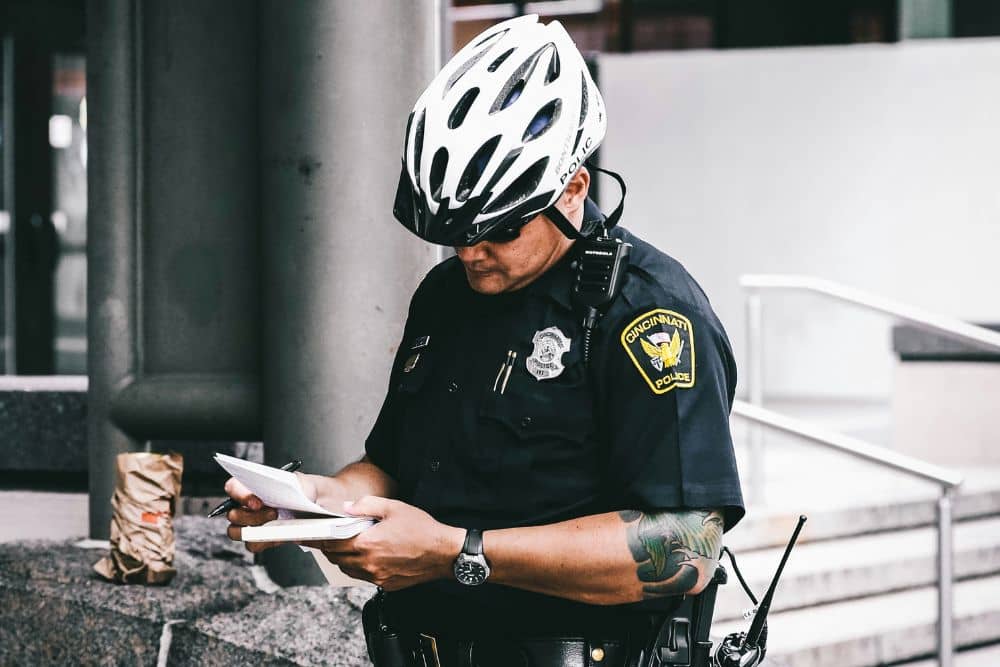Can You File an Insurance Claim Without a Police Report in Ohio?

After a car accident, one of the first things you’re often told to do is call the police. But what happens when you can’t get a police report? Perhaps the officers were too busy to respond, or maybe you didn’t realize the extent of the damage until later.
Whatever the reason, you might find yourself wondering: can you file an insurance claim without a police report? The short answer is yes, but it’s not always straightforward.
Why Police Reports Matter in Insurance Claims
Police reports serve as an official, unbiased account of what happened during an accident. They typically include details like the date, time, and location of the incident, as well as information about the parties involved and any witnesses.
Insurance companies rely heavily on these reports when processing claims, using them to determine fault and assess the validity of the claim.
In Ohio, police reports carry significant weight in car accident cases. They can provide a foundation for your insurance claim and potentially strengthen your position if legal action becomes necessary. However, while police reports are valuable, they’re not always required to file an insurance claim.
When Might You Need to File a Claim Without a Police Report?
There are several scenarios where you might find yourself needing to file an insurance claim without the benefit of a police report:
Minor Accidents and Fender Benders
In cases of minor accidents with minimal damage, police may not respond to the scene. According to Ohio law, you’re only required to report accidents that result in injury, death, or property damage exceeding $1,000. For minor incidents that fall below this threshold, you can file without an official police report.
Parking Lot Incidents
Many parking lot accidents occur without witnesses or police involvement. These situations often require you to file a claim based on your own documentation and account of events.
Delayed Damage Discovery
Sometimes, you might not notice damage to your vehicle until after you’ve left the scene of the accident. In such cases, you won’t have the opportunity to involve the police at the time of the incident.
Police Unable to Respond
During times of high call volumes or severe weather conditions, police may be unable to respond to non-injury accidents. In these situations, you’ll need to gather your own evidence and file a claim without their assistance.
How to File an Insurance Claim Without a Police Report
While filing a claim without a police report can be more challenging, it’s not impossible. Here’s what you need to do:
Gather Essential Information at the Scene
Even without police present, it’s crucial to collect as much information as possible. Exchange contact and insurance details with the other driver(s) involved. Take photos of the damage to all vehicles and the surrounding area. If there are witnesses, get their contact information and ask if they’d be willing to provide a statement.
Notify Your Insurance Provider ASAP
Contact your insurance company as soon as possible after the accident. Many policies require prompt notification, and delaying could potentially jeopardize your claim.
Prepare a Detailed Personal Accident Report
In the absence of an official police report, you’ll need to create your own detailed account of the incident. Include all relevant information: date, time, location, weather conditions, and a step-by-step description of what occurred. Be as objective and thorough as possible.
Submit Supporting Evidence
Provide your insurance company with all the evidence you’ve gathered, including photos, witness statements, and your personal accident report. The more documentation you can provide, the stronger your claim will be.
Contact Our Insurance Claims Attorneys
If you’re feeling overwhelmed or unsure about how to proceed with your claim, don’t hesitate to reach out to The Jones Firm. Our experienced insurance claims attorneys can guide you through this process, ensuring you take all the necessary steps to strengthen your claim, even without a police report.
Potential Challenges When Filing Without a Police Report
While it’s possible to file a claim without a police report, you may face some hurdles. Without an official police report, insurance adjusters may scrutinize your claim more closely. They might require additional evidence or documentation to support your version of events.
Police reports often include an officer’s assessment of fault. Without this, determining who was responsible for the accident can become more complicated, potentially affecting your claim’s outcome.
Some insurance companies may be more reluctant to approve claims without police reports, or they might offer lower settlements. This is where having thorough documentation becomes crucial.
If your case ends up in court, the lack of a police report could make it more challenging to prove your case. However, with strong evidence and witness testimony, it’s still possible to build a compelling case.
Legal Considerations and Your Rights
Again, in Ohio, the law requires you to report accidents to the police if they result in injury, death, or property damage exceeding $1,000. Even if you couldn’t get a police report at the scene, you can still file one with local law enforcement after the fact.
For instance, you can file a BMV 3303 crash report with the Bureau of Motor Vehicles for accidents resulting in injury or property damage over $400.Also, be mindful of the statute of limitations. In Ohio, you have two years from the date of the accident to file a personal injury claim. Don’t let the absence of a police report deter you from pursuing your rightful compensation.
Remember, even without an official report, you retain the right to seek damages for an accident that wasn’t your fault. However, building your case may require more effort and diligence.
Start Your Insurance Claim With The Jones Firm Today
Dealing with insurance claims can be a headache, especially without a police report. But you don’t have to go it alone. At The Jones Firm, we’ve seen it all when it comes to tricky insurance situations. Our attorneys know the ins and outs of Ohio law and how to make it work for you.
We’ll stand by your side, helping you gather what you need and talking to insurance companies so you don’t have to. No police report? No problem. We’ll work with what we have to fight for what you deserve.
The sooner you reach out, the sooner we can get to work for you. Contact us today to discuss your options.



